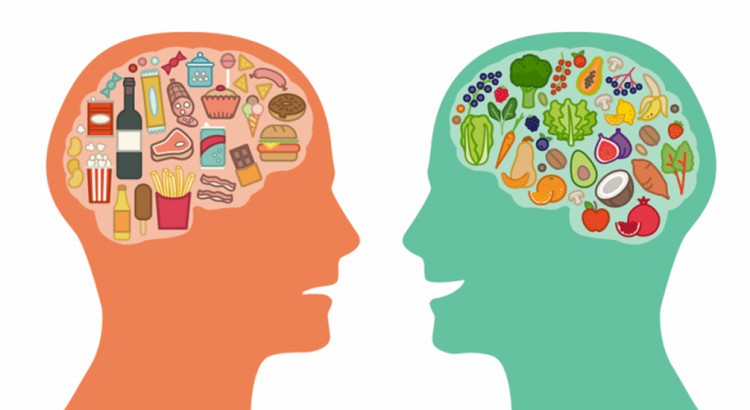- FATTY ACID BALANCE: Omega-3 to omega-6 fat balance is essential for mental health and addiction treatment. Up to 60% of our brain is made of w-3 fats. A majority of Americans consume a 1:26 ratio, not the recommended 1:4 ratio. It is likely rebalancing these fats will improve mental health. (3)(4) (5)
- FIBER AND GUT HEALTH: Healthy foods, high in fiber, are food for the good bacteria in our gut. These good bugs keep our gut healthy and working properly. So what does this have to do with mental health? The majority of our neurotransmitters, especially serotonin (as high as 90%), are made in the gut. When gut health is compromised with poor bacterial diversity, harmful bacteria, and/or nutritional imbalances the production of neurotransmitters in compromised. It is possible that a person living with mental health concerns has altered gut function regardless of gut symptoms. (1) (2)
- NUTRIENT DEFICIENCIES: Deficiencies of amino acids as well as vitamins and minerals like B12, folate, B6, magnesium, vitamin D, and vitamin C are common in those impacted by mental health concerns. These nutrients are necessary to make neurotransmitters as well as DNA. Deficiencies are related to poor food intake, food grown in nutrient-poor soil, or our body’s inability to use nutrients properly. The latter can be due to genomic “kinks” or SNPs (single nucleotide polymorphisms) prevents our DNA from expressing correctly. With these genomic misspellings, our body can’t function optimally causing a build-up of inflammation. These SNPs can also impair the body’s detoxification of self-made cellular waste and environmental toxins (heavy metals, pollution, harsh cleaning chemicals) leading to further damage to our physical and mental health. Nutritional deficiencies and SNPs can be linked to OCD, anxiety, depression, eating disorders, and other mental health conditions.(10) (11) (12) (13) (14)
- FOOD SENSITIVITIES: Food sensitivities can cause inflammation in the GI tract. This can cause hyperpermeability aka “leaky gut” that left untreated can cause further inflammation in the brain, compromising mental health. Studies have even shown that gluten sensitivity can be linked to the development of psychosis and schizophrenia. (6) (7) (8) (9)
- THYROID SUPPORT: Impaired thyroid activity or autoimmune thyroid disease is often present with anxiety and/or depression while thyroid disease goes undiagnosed. Nutritional interventions that include iodine and selenium, along with gluten and dairy free diets for autoimmunity can support the thyroid and often reduce or eliminate associated mental health illness. (15) (16) (17)

